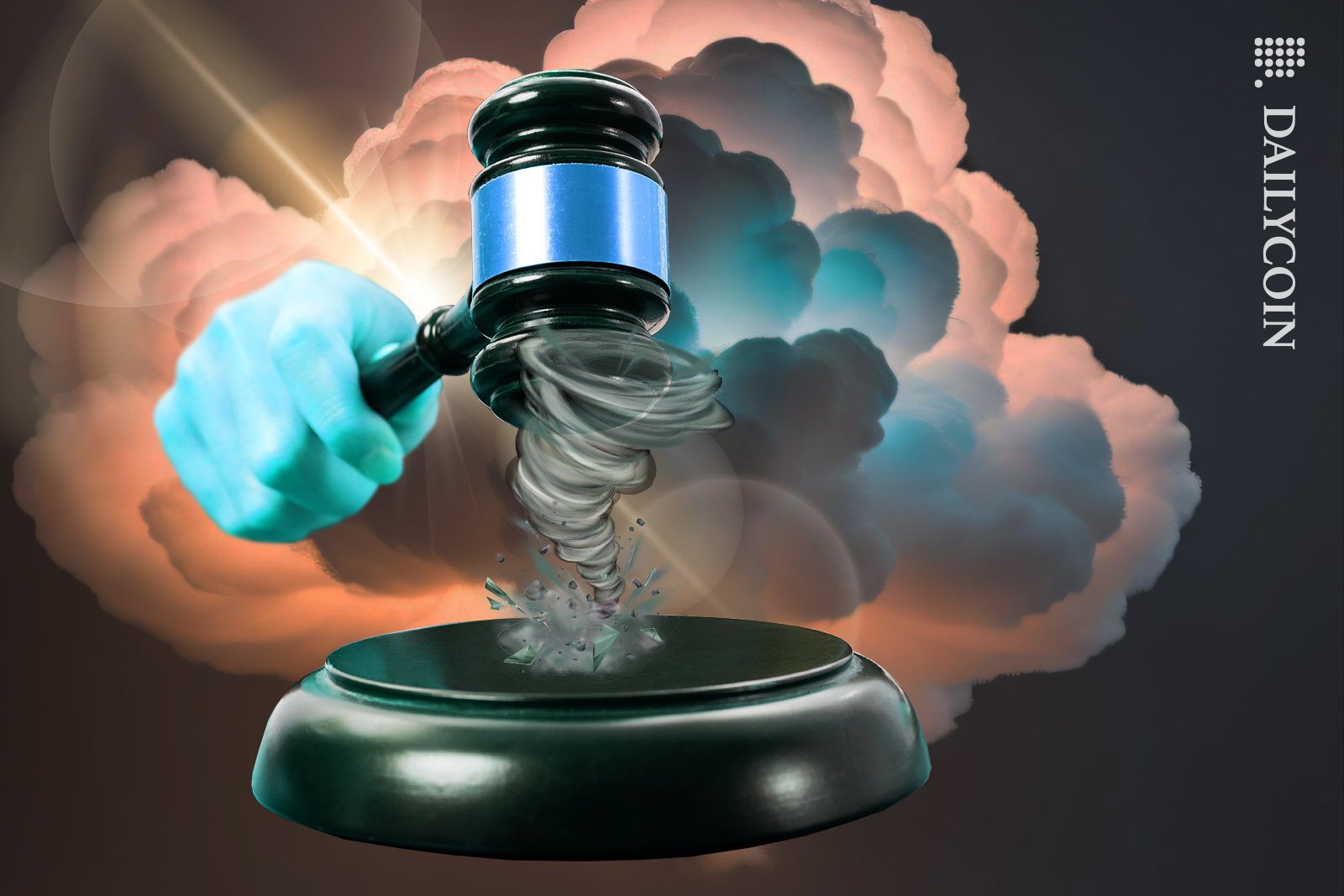
- The US DOJ has responded to Tornado Cash founders’ motion to dismiss.
- Government prosecutors explained why the Tornado Cash founders must answer for their crimes.
- Prosecutors argued that Tornado Cash was a commercial enterprise.
Earlier in April, the co-founders of the notorious cryptocurrency mixing service Tornado Cash challenged the US government’s accusations, filing a motion to dismiss all charges against them. Their main argument was that they were just developers.
However, the US Department of Justice (DOJ) has responded to Tornado Cash in a new 111-page motion, opposing their motion to dismiss and explaining why.
Tornado Cash Was a Commercial Enterprise
Government prosecutors, led by US Attorney for the Southern District of New York Damian Williams, shared that characterizing Roman Semenov’s crime as just writing codes undermined his role in promoting and maintaining the TornadoCash platform. Despite knowing its use in laundering illicit proceeds from hacks, Semenov continued to facilitate the platform’s operation.
Sponsored
The prosecutors explained the crypto mixer service was a commercial enterprise at the end of the day, which is why its co-founders should answer for the alleged crimes levied against them.
"The Indictment clearly alleges that the Tornado Cash service was a commercial enterprise carried on for profit or financial gain and that the defendant himself profited from its operation through his control, with others, of key components of the integrated Tornado Cash service," the motion read.
Prosecutors underscored that while smart contracts powered the crypto mixing operation, most users accessed the service through its website interface. Additionally, 98% of users used the optional relayer network, which was set up and operated by relayers manually allowed by Tornado’s co-founders until March 2022.
DOJ Says TornadoCash Founders Did More Than Write Code
While Semenov’s motion challenged the characterization of Tornado as a money-transmitting business, prosecutors argued otherwise, writing,
Sponsored
"...the Tornado Cash service caused all of these actions to take place behind the scenes and without any further action by the customer. Under the ordinary meaning of the term, the Tornado Cash service was transferring funds when it executed customer deposits and withdrawals in this way."
Prosecutors further emphasized that Semenov and Storm took several steps to keep Tornado running, including payments to host the site, paying gas for blockchain transactions, “refusing” to implement proper anti-money laundering programs, maintaining the relayer network, and developing new features to keep the service anonymous.
Since they performed these actions after becoming aware that Tornado was used to launder the proceeds of several large hacks, the government alleges these actions are part of the conspiracy charged in the indictment.
On the Flipside
- Roman Semenov faces charges of committing money laundering, violating the International Economic Emergency Powers Act, and running an unlicensed money-transmitting business, which could potentially result in a maximum prison sentence of 45 years.
- The US government has recently upped its crackdown on crypto-mixing services and self-custodial wallets, driving leading providers like Samourai and Wasabi out of the country.
Why This Matters
The verdict of the Tornado Cash case can shape the legal boundaries for crypto mixers and potentially set a precedent for how much responsibility developers hold for using their software. Prosecutors’ recent counter-motion underscores the factors that could land developers in trouble, including the role of the native interface in facilitating user interaction with smart contracts.
DTCC rejects crypto investments from receiving collateral:
DTCC Opts Out Bitcoin ETFs from Receiving Any Collateral
Yuga Labs restructures again:
Yuga Labs Restructures Again: Announces More Layoffs
